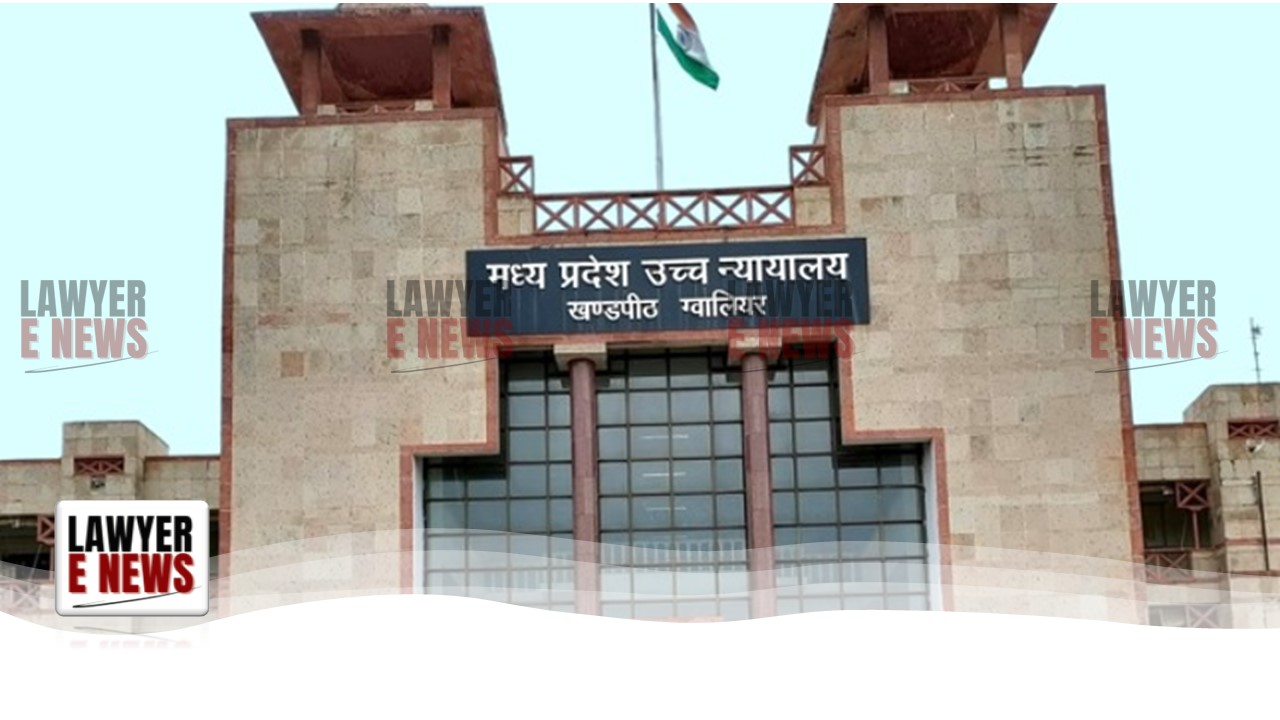-
by Admin
15 February 2026 5:01 PM



Incentivised Marks Must Be Added to Normalised Scores, Not Raw Scores: Madhya Pradesh High Court quashed the State Merit List for NEET-PG 2024 for in-service candidates, finding that the methodology adopted by the National Board of Examinations in Medical Sciences (NBEMS) was flawed and inconsistent with the principles of fairness in competitive examinations. The court ruled that incentivised marks for in-service candidates had been erroneously added to raw scores instead of normalised scores, creating discrepancies in rankings and distorting the merit list.
The bench of Hon’ble Justice Sanjeev Sachdeva and Hon’ble Justice Vinay Saraf allowed the writ petition filed by Dr. Abhishek Shukla and others, directing NBEMS to redraw the State Merit List using normalised scores for adding incentivised marks and to complete the process expeditiously.
The NEET-PG 2024 examination was conducted in two shifts, with varying difficulty levels between shifts. NBEMS had adopted the percentile-based normalisation method to equalise scores across shifts for the All India Merit List. However, the incentivised marks for in-service candidates—awarded for service in rural or hard areas—were added to raw scores before normalisation when preparing the State Merit List.
The court observed:
"Normalisation is a statistical process that equalises scores across multiple examination shifts to account for varying difficulty levels. Adding incentivised marks to raw scores compounds the discrepancies caused by differences in difficulty between shifts, creating an uneven playing field."
The court held that incentivised marks must be added to normalised scores to ensure fairness. Adding incentivised marks to raw scores gave candidates in one shift an undue advantage due to compounded benefits arising from differences in difficulty levels.
The court highlighted instances where candidates with higher All India ranks were ranked lower than the same candidates in the State Merit List. For example:
• Candidate A1 (Shift 1, All India Rank 1196) was ranked lower than Candidate A2 (Shift 2, All India Rank 1174) in the State Merit List, despite being higher in the All India rankings.
• Similar discrepancies occurred for candidates C1 and C2, where C1 had a higher raw score but was ranked lower in the State List after the addition of incentivised marks.
The court observed:
"Rankings based on relative performance in the same examination cannot logically differ between lists. The method adopted for the State Merit List violates the principle of consistency in competitive examinations."
The court noted that while the methodology for preparing the All India Merit List was notified to candidates in advance, the methodology for preparing the State Merit List, including the addition of incentivised marks to raw scores, was never disclosed.
The court held:
"The failure to notify the methodology for preparing the State Merit List violates principles of fairness and transparency in examinations. Candidates have a right to know the criteria that will govern their rankings."
The High Court quashed the State Merit List for NEET-PG 2024 for the State of Madhya Pradesh and directed NBEMS to redraw the list using the following methodology:
1. Add Incentivised Marks to Normalised Scores: Incentivised marks for in-service candidates must be added to normalised scores, not raw scores, to ensure fairness.
2. Maintain Consistency in Rankings: Rankings in the State Merit List must reflect relative performance consistent with the All India Merit List.
3. Transparency: The revised methodology must be notified to candidates to ensure transparency.
The court directed NBEMS to complete the process as expeditiously as possible and allowed the writ petition with no order as to costs.
Significance of Normalisation in Multi-Shift Exams
The court emphasized that normalisation is critical for ensuring a level playing field in examinations conducted in multiple shifts with varying difficulty levels.
Fairness in Incentive Allocation
Incentives must be applied in a manner that does not create compounded benefits or disadvantages due to differences in shift difficulty. Adding incentivised marks to normalised scores ensures equity among candidates.
Transparency in Examination Processes
The judgment underscores the importance of notifying examination methodologies in advance to avoid arbitrary practices and ensure fairness.
Date of Decision: December 9, 2024
